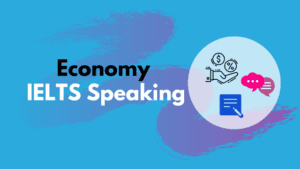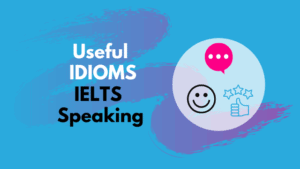Ok.
A quick truth.
There is no ‘best way’ to prepare for IELTS Speaking!
Why?
Well simply, because we are all different.
We all need to prepare in different ways depending on several things, such as,
- whether you like studying alone or with others
- how good you are at learning languages (do you need a teacher?)
- how much time you have
That said, there are good ways and bad ways to prepare for IELTS Speaking.
Let’s make sure you know the good ways, so you can prepare to get an IELTS Speaking band 8 or band 9, rather than a lower score.
Then you can also choose and adapt things to match your circumstances.
Here are some things that I recommend you always do.
Table of Contents
This is key!
Before you start preparing, you really need to know where you are now.
If not, you will focus on the wrong things and waste time and money.
By doing a mock test early on, you will know exactly what your level is and where to focus.
You have two options here.
1. Find a qualified and experienced IELTS teacher to do a simple mock speaking test.
There are some IELTS specialists on language learning platforms like italki
2. Do a full mock test with an online company like Preptical
Make a realistic plan to prepare for IELTS Speaking
Without a system, you might spend hours browsing Youtube videos. 🎥
Yes, that is entertaining, but what are you learning?
You need a routine, if possible daily, where you study English at the same time everyday.
Having a routine means you don’t have to think about it.
You just start to study.
I recommend the same time, same place every day.
Remember it is better to do 10 minutes a day, rather than 1 hour once a week.
Also make sure your plan is realistic.
You will not jump up one level in 2 weeks!
Here are some rough guidelines from Cambridge of times needed to move up one level. The higher your level, the more time you will need.
Originally, these were for CEFR levels (A1 to C2), but I have adjusted them for IELTS Scores (based on approximate equivalents from Cambridge)
- IELTS Band 3 – 4 = 100 – 150 hours
- IELTS Band 4 – 5 = 160 – 240 hours
- IELTS Band 5 – 6 = 180 – 260 hours
- IELTS Band 6 – 7 = 200 – 300 hours
So, if you studied 3 hours a day, from Monday to Friday, it would take you 5 months to study 300 hours and go from Band 6 to 7.
(This varies for each person, as background, motivation and opportunities are different for each learner)
Check out my 2-month Study Guide for IELTS Speaking
Tell others about your study plan
Why?
A study plan will help you focus on studying and not having to waste time or energy everyday deciding what to study.
When you tell others, you create social pressure.
This usually means you are more likely to keep studying, because your plan is public.
So, tell your family and friends you are starting to prepare for IELTS Speaking, and tell them your plan.
Now they know you are studying, they are going to be asking you about it.
So you better make sure you are doing it!
This will motivate you to keep going and make sure you keep studying.
Get some good study resources
Some good websites with some good free resources are;
www.ieltsliz.com
www.ieltsadvantage.com
www.ieltsetc.com
Find a community via a Facebook Group to stay motivated.
Get a good course book that you will work with.
Get some good reference books.
I can recommend the following,
Sign up for an IELTS SPEAKING course
Of course, you could study and prepare for the IELTS Speaking test on your own, but it’s hard.
Without a professional teacher telling you how to study, you risk studying ineffectively and seeing no improvement.
The investment in a good course gives you
- a qualified teacher,
- good learning techniques,
- a clear study plan,
- a group or community of other students to share your learning with and get support from.
It is an investment that will probably save you money.
Remember, there is no ONE best course; there is just a best course for you.
When choosing a course, yes, listen to others, but decide for yourself. What worked for another, may not work for you.
Also, don’t think of cost, think of value.
You are investing in your future, your skill set, your career and your family.
There are several free IELTS online courses you can take.
The first 3 are actually run by the British Council and are top class.
https://www.futurelearn.com/courses/understanding-ielts
https://www.futurelearn.com/courses/understanding-ielts-speaking
https://www.edx.org/es/course/ielts-academic-test-preparation-0
Know the IELTS speaking test format
Good preparation for IELTS Speaking means you must know the format of the test.
The IELTS speaking test is a face-to-face live test with an examiner.
It lasts 11 – 14 minutes.
It takes the format of an interview, where the examiner asks you a series of questions that you need to answer as naturally as possibly.
Basically, IELTS speaking tests your ability to communicate clearly and naturally in spoken English.
For this reason, the following will not help you;
- memorising answers or scripts
- formal and academic language
- speaking like you write
You need to use spoken language, including informal language, idiomatic expressions and good collocations.
First listening lots and then practicing speaking as much as possible with proficient speakers is probably the best preparation for IELTS Speaking.
The 4 areas of speaking that are tested are Fluency, Vocabulary, Grammar and Pronunciation.
So, focus on improving all of these areas when you prepare for IELTS Speaking.
Find out about the IELT Speaking test complete format
Download the IELTS Speaking Band Descriptors
Do lots of speaking practice
Why?
The best way to improve your speaking is to speak more.
Speak with different people, not just your teacher. For example,
- ask other students to practice with you,
- look for a language partner on Preply,
- get a speaking partner on Facebook
If you don’t have the possibility to speak with others, there are lots of good ways to practice on your own.
Get feedback on your IELTS speaking
Why?
The only way to know if you are speaking correctly, making sense and communicating clearly is if someone, preferably a proficient speaker of English, gives you feedback.
They can
- tell you your mistakes, so you correct them
- suggest better ways of saying things
- help you expand your vocabulary
- look confused if your pronunciation is not good!
Record yourself speaking
Why?
You need to monitor your speaking and your progress.
It’s not enough to just speak lots and hope for the best.
Recording is quick, free and easy to do on your own.
You can do it with your mobile phone.
Remember, you don’t just want to chat lots.
You need to be sure you are improving the 4 IELTS Speaking skills.
IELTS speaking band descriptors evaluate 4 areas; fluency, vocabulary, grammar and pronunciation.
We often forget this when we practice English by just chatting with friends or classmates.
By listening to yourself, you can assess your performance against the band descriptors across all 4 areas, and so make real improvement.
Make sure you listen back, and look for ways to improve too. This is a great technique to help you prepare for IELTS Speaking.
Make your vocabulary bigger and better
When you get to strong intermediate level (around IELTS 6), you have probably studied all the grammar there is.
Your pronunciation is unlikely to change much at this level.
The big difference between IELTS 6 and then IELTS 7-9, is your range of vocabulary.
This is also an area you can probably build much more quickly than fluency.
So I recommend vocabulary is the key area where to focus.
You need to find out
- how to learn vocabulary.
- how to extend passive vocabulary
- how to activate and hard-wire new vocabulary
Immerse yourself in natural / authentic English
Why?
You can get bored, and possibly limit the range of vocabulary you learn, if you only study from a course book.
You also need to be exposed to natural and authentic English. Such things as Films, Podcasts, Radio Shows, Debate Shows, Documentaries, etc…
What’s more, these can give you lots of ideas to talk about in IELTS Speaking.
You are not evaluated on the quality of your ideas, but you need ideas to talk about.
Talk shows that discuss topical issues are a great source.
What’s more, having plenty of ideas on different IELTS topics, will give you more confidence.
Here are some suggestions for you.
Remember these are authentic (not made for English learners) so get ready for a challenge – but a good one!
Do plenty of IELTS Speaking practice tests under exam conditions
Why?
Doing mock IELTS Speaking tests under exam conditions, even with a friend pretending to be the examiner, puts you under pressure. You need to get used to that pressure, and also get used to the timing of the test.
Also, you don’t want any surprises on the test day. Most candidates are already nervous. I have seen many get even more nervous during the test because nobody had told them that…
- the test is recorded
- the examiner doesn’t answer their questions
- the examiner sometimes interrupts them quite strongly
- the examiner often doesn’t look interested because they don’t care about your ideas (they care about your language)
So again, finding a teacher who know s IELTS inside out (very well) would be a good way to prepare for IELTS Speaking.
Check out italki to find some good IELTS teachers
That’s it, 12 awesome tips that I hope will help you prepare for the IELTS speaking test.
If you enjoyed this article, you might want to read this page, which tell you more about preparing part 2 of the speaking test.
I hope all these ideas will help you get the best preparation for IELTS Speaking.
Share your experience or tips for preparing for IELTS in the comments below. Together we can learn as a community.









10 thoughts on “How Best to Prepare for IELTS Speaking”
Pingback: How to Get a High Score in IELTS Speaking - Keith Speaking Academy
Sir,good for all Ielts students.Thank you very much sir.
Thank You, Sir. Your Udemy course, YouTube videos and website are doing wonders for me.
So pleased to hear that!
You are utterly the best Keith, I am addicted to your videos and articles. Thanks for being here 🙂
Thanks – I am really pleased that you find them useful!
Thank you so much keith, your keep guide us and motivate us. More Power and Godbless.
Glad it can help!
Thanks.This is very informative and enlighten.
Great- very pleased to hear that!